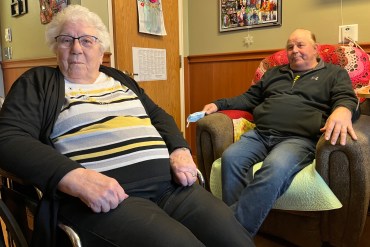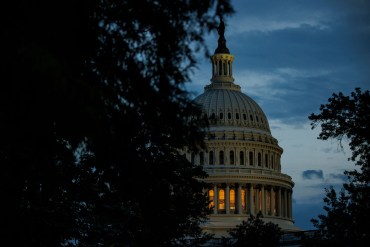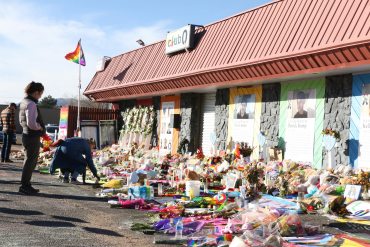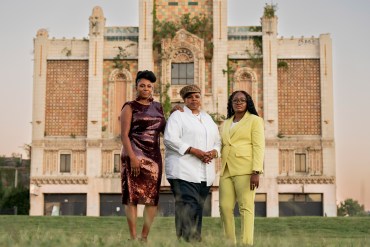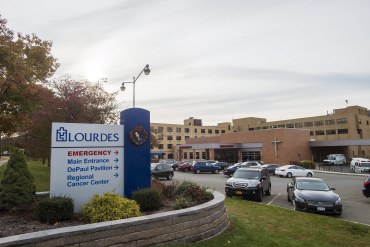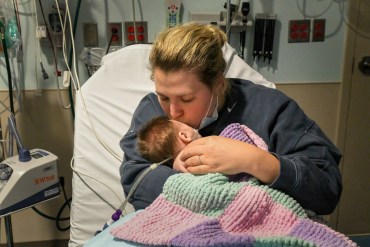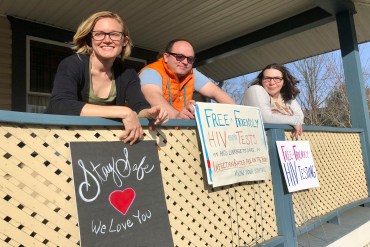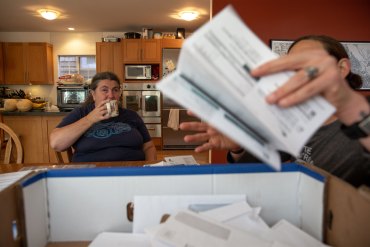Wave of Rural Nursing Home Closures Grows Amid Staffing Crunch
Many small-town care facilities that remain open are limiting admissions, citing a lack of staff, while a wave of others shutter. That means more patients are marooned in hospitals or placed far away from their families.
Unmet Needs: Critics Cite Failures in Health Care for Vulnerable Foster Children
More states are moving to specialized managed-care contracts solely to handle medical and behavioral services for foster kids. But child advocates, foster parents, and even state officials say these and other care arrangements are shortchanging foster kids’ health needs.
Abortion Debate Ramps Up in States as Congress Deadlocks
Abortion is a top issue for state lawmakers meeting for their first full sessions since Roe v. Wade was overturned.
A $30 Million Gift to Build an Addiction Treatment Center. Then Staffers Had to Run It.
Howard Buffett, son of billionaire investor Warren Buffett and chairman of his own charitable foundation, gave $30 million to build an addiction treatment center in the central Illinois community where he farms. But the money was a one-time gift for infrastructure, so the clinic is on its own to keep it running.
Rural Seniors Benefit From Pandemic-Driven Remote Fitness Boom
When the pandemic began, senior service agencies hustled to rework health classes to include virtual options for older adults. Now that isolation has ended, virtual classes remain. For seniors in rural areas, those classes have broadened access to supervised physical activity.
In PA County Jails, Guards Use Pepper Spray and Stun Guns to Subdue People in Mental Crisis
An investigation of records from 25 county jails across Pennsylvania showed that nearly 1 in 3 “use of force” incidents by guards involved a confined person who was having a psychiatric crisis or who had a known mental illness.
NY Docs Are Now Required to Prescribe Naloxone to Some Patients on Opioid Painkillers
This strategy — now in place in at least 10 states — is part of an effort to curb accidental opioid overdose deaths by patients who take these powerful medications.
Telehealth Brings Expert Sexual Assault Exams to Rural Patients
Some rural residents must travel hours for a sexual assault exam. Specialized telehealth services are expanding so they can obtain care closer to home.
Colorado Considers Changing Its Red Flag Law After Mass Shooting at Nightclub
In El Paso County, where five people were killed in a mass shooting at a nightclub in November, officials have filed relatively few emergency petitions to temporarily remove a person’s guns, with scant approvals.
Survivors of Gangs and Gun Violence, These Women Now Help Others Navigate Grief
As teens, these three women lived amid street gangs around East St Louis, Illinois. Now, as adults, they support the families who have lost loved ones to gun violence. And because of their past, some residents trust them more than they do the police.
Hundreds of Hospitals Sue Patients or Threaten Their Credit, a KHN Investigation Finds. Does Yours?
An examination of billing policies and practices at more than 500 hospitals across the country shows widespread reliance on aggressive collection tactics.
Inside a Children’s Hospital: Struggling to Cope With a Surge of Respiratory Illness
Pediatric cases of RSV and flu have families crowding into ERs, as health systems juggle staff shortages. In Michigan, only 10 out of 130 hospitals have a pediatric ICU.
The Official Who Investigates Suspicious Deaths in Your Town May Be a Doctor — Or Not
Across the country, there are no consistent requirements for the officials who investigate suspicious and unexpected deaths. Some have no medical training, others are doctors trained in forensic pathology. Washington, California, Illinois, and Georgia are among the states that have recently attempted to make changes — with mixed success.
HIV Outbreak Persists as Officials Push Back Against Containment Efforts
Research shows offering clean syringes to people who misuse IV drugs is effective in combating the spread of HIV. But an epidemiologist and advocates say state and local officials in West Virginia, home to one of the worst HIV outbreaks in recent years, have taken measures that render syringe exchange less accessible.
To Combat Gun Violence, This Artist Turns Ammunition Into Art
In a city plagued by gun violence, Mykael Ash is turning ammunition into art. Ash, who lives in East St. Louis, Illinois, frequently walks through parts of the city where bullet shells aren’t hard to find. The shell casings represent a cycle of inequality, Ash says, and the art he makes with it serves as a call to action.
Why Medicaid Expansion Ballots May Hit a Dead End After a Fleeting Victory in South Dakota
Since 2017, Medicaid expansion has been adopted in seven states where a question was placed directly on the ballot. But campaign leaders say that strategy may not work in Florida and Wyoming, where Republican opposition remains strong.
How Medicare Advantage Plans Dodged Auditors and Overcharged Taxpayers by Millions
Facing rare scrutiny from federal auditors, some Medicare Advantage health plans failed to produce any records to justify their payments, government records show. The audits revealed millions of dollars in overcharges to Medicare over three years.
KHN Investigation: The System Feds Rely On to Stop Repeat Health Fraud Is Broken
A months-long KHN examination of the system meant to bar fraudsters from Medicaid, Medicare, and other federal health programs found gaping holes and expansive gray areas through which banned individuals slip to repeatedly bilk taxpayer-funded programs.
More States to Consider Extending Postpartum Medicaid Coverage Beyond Two Months
Fifteen states haven’t moved to extend Medicaid coverage for new moms beyond the minimum of 60 days after birth. But at least four of those holdout states — Montana, Wyoming, Missouri, and Mississippi — are expected to consider proposals to extend coverage in their upcoming legislative sessions.
The Disability Tax: Medical Bills Remain Inaccessible for Many Blind Americans
Health insurers and health care systems across the country are violating disability rights laws by sending medical bills that blind and visually impaired people cannot read, a KHN investigation has found. By hindering the ability of blind Americans to know what they owe, some bills get sent to debt collections.




